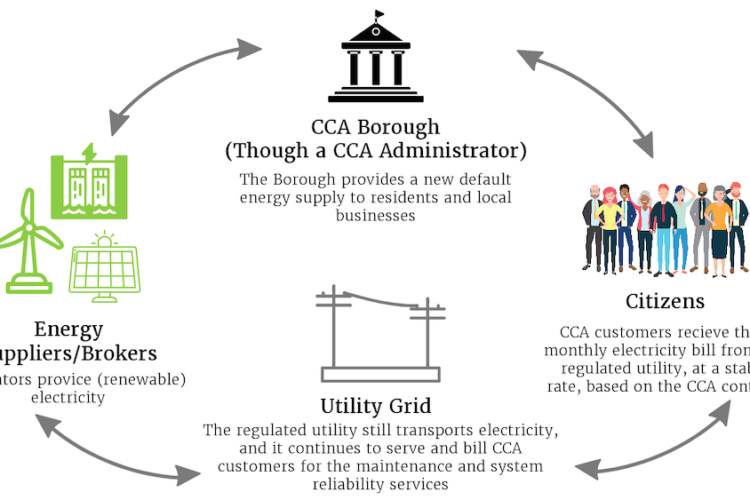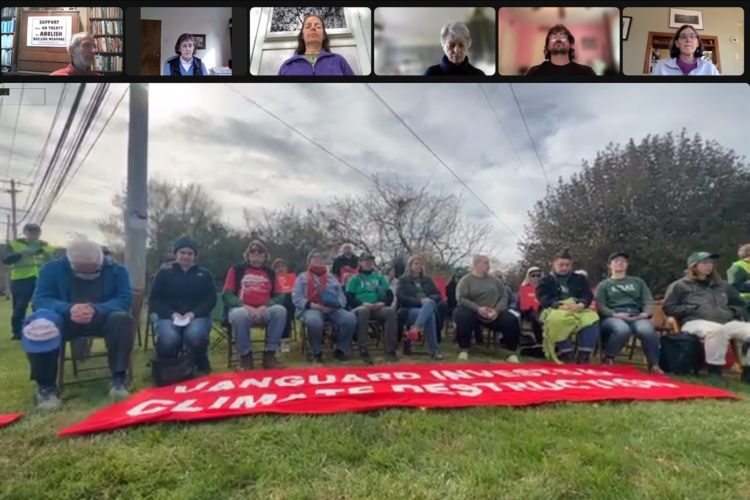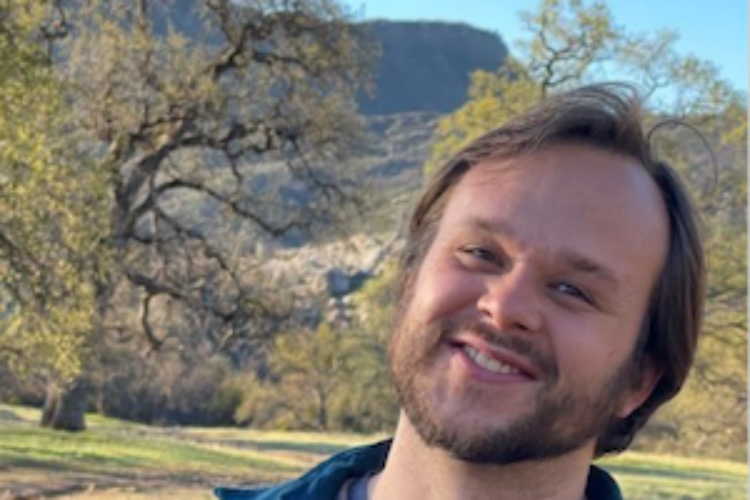Caring About Population

Most Friends are careful stewards of our environment. Indeed, more than half of Yearly Meetings have added “Stewardship” (or the equivalent) to their short list of Testimonies. However, sometimes we don’t make the connection between our stewardship of Earth and human population.
OK, I admit it: the word “population” has bad connotations. For some it may bring up memories of forced sterilization in India, forced abortion in China or even genocide in Nazi Germany. I’ve tried to find a better word for the numbers of people on Earth and haven’t found any. Please let me know if you have one in mind!
I became interested in population as a senior at Germantown Friends School in Philadelphia. I had already made the commitment to work for peace, but realized that politics is not my forte. Then I read an advertisement in Scientific American that said, in part: “We believe that widespread, effective and voluntary use of medically sound and individually acceptable birth control is an essential factor in any humane design to raise world living standards and achieve international peace….” Aha! I could use my scientific aptitude to work for peace as a physician!
This ad, paid for by the Planned Parenthood Federation of America, went on to say: “…we urge that the United Nations take the lead in establishing and implementing a policy designed to limit population growth the world over—in order that human beings everywhere may develop their highest capacities, enjoy individual freedom, health, privacy, security, and the beauty and wonder of the world.”
The UN did not act on this request, even though it was signed by 34 Nobel Laureates. Fortunately, that torch has been carried by people of good will. There are demographers in every country who study their people’s statistics. I chose medicine as my profession, and the specialty of obstetrics and gynecology. For more that 40 years I was able to help people plan their families. It was an incomparable privilege to get to know people in Durango, Colorado, so well.
Understanding some of the basics of demography became necessary to teach at the local college. To reach more people about the importance of population, I also started writing what is probably the world’s only regularly-appearing newspaper column on aspects of population, “Population Matters!” In fact, the column, now 25 years old, may outlive the Durango Herald, which is going the way of many small-town newspapers.
At my first meeting of Friends Committee on Unity with Nature (now Quaker Earthcare Witness) I discovered that other Quakers were concerned about overpopulation. The Friends Journal article featuring Stan Becker’s witness to meetings in the East had reassured me that I was not the Lone Ranger—but here was an organized group of Friends many of whom shared the same concern. Now the Population Working Group, we boast of many population activists and 2 real PhD demographers—Stan Becker and Roy Treadway. Roy and Stan have turned their concern about population into their profession.
Other than filling out the census forms every decade, many people in the USA don’t give much thought to issues of population. For instance, in a survey more than half of us in the USA were clueless about the population of our country or of the world. Did you know that the global population increase (births minus deaths) is about 80 million people each year?
You might ask, “So what? We’re happy and healthy and have plenty to eat!” Unfortunately, all is not well—but you know that already if you are reading BeFriending Creation! There are good reasons to believe there are too many of us. An example is global climate chaos, which is caused by too many people emitting too much carbon into the atmosphere. Those emissions can be either direct (cooking or driving a car) or indirect (eating grapes from Chile which were fertilized using a diesel tractor, then flown by jet to the USA).
Estimating your “carbon footprint” is a good exercise for each of us to do, because it allows us to understand our carbon emissions and how to decrease them. Calculating a person’s “carbon legacy” (the amount of greenhouse gases for which an individual is responsible, including the carbon emissions of that person’s offspring) is a better way of determining our contribution to climate heating. In the end, our decisions about childbearing influence our effects on Earth’s climate immensely.
It turns out that far and away the most important measure of how much an individual is contributing to degradation of our environment is the number of children they have.
The good news is that there is a global trend toward having fewer—or even no—children. I honor several members of QEW who have elected to parent, but to adopt their families.
People in about half of the world’s countries have realized the advantages of small families. The list of countries that will achieve ZPG (Zero Population Growth) includes China, Cuba, Costa Rica, Mexico—and the USA. All these countries have TFRs (Total Fertility Rates—the number of children a woman will bear in her lifetime) of 2.1 or less—one child to replace the mother, one to replace the father, and a fraction because not all children grow up to reproduce. However, it will take decades for growth to stop, because of the large number of kids who haven’t reached reproductive age yet.
There are also countries where the population is already decreasing. Many of them are in Eastern and Southern Europe, such as Finland, Greece, Ukraine and Bulgaria. Three—Japan, Germany and Puerto Rico—are geographical exceptions.
Immigration is an important issue I would prefer to ignore. My father was an immigrant from Russia. He came to the USA in 1906 when he was 4 to escape pogroms in Russia. Our younger son married a wonderful woman from Ukraine. Coincidentally, she lived close to the town where my father was born. I realize that our country cannot support unlimited immigrants, yet I my heart goes out to people who seek refuge for political, religious, health or climatic reasons.
My concern about human population started as an intellectual concern: how can one member of the Religious Society of Friends promote world peace? In addition to helping women have planned, healthy children, I have had lots of sidelines. These include inventing and patenting a “rip-stop” condom, developing a way to promote the world’s most widely used family planning method (breastfeeding), writing essays on aspects of human population (www.population-matters.org) and creating a new genre of art (contraceptual art).
However, it took living in Monteverde, Costa Rica to find what has touched my heart the most. My intention when we moved there for a 3-month sabbatical was to do field work with some of the biologists, who have done amazing research in the cloud forest. When we arrived, I found out that unfortunately they were mainly hunkered down because it was the rainy season. Instead, I spent a lot of time in the library of the Monteverde Institute, where I discovered the discipline of conservation biology. These are scientists whose goal is to prevent the extinction of species.
I learned that there are several causes that make species of plants and animals extinct. They include: destruction of habitat, climate chaos, pollution, introduction of exotic species, overharvesting and infection. Other than a rare natural event such as a volcano spewing lava over a flower’s habitat, these causes are all human. Pogo said it best: “We have met the enemy and he is us.”
Extinctions have been going on for eons—every 4-year-old lover of dinosaurs knows that! However, it is estimated that the current rate of extinction is 1000 times normal—and that it (like climate chaos) is anthropogenic.
Moreover, there seems to be a direct relationship between the number of people on the planet and the number of species that we annihilate. Very crudely calculated, one species is sent into oblivion for every increase in population of approximately 40,000 people.
Thus, there are two reasons to slow population growth, and they both pertain to Quaker Testimonies—Peace and Stewardship.
More important in today’s way of ethical thinking are the advantages to the individual. Formalized last century, “reproductive rights” are defined by the World Health Organization as:
“Reproductive rights rest on the recognition of the basic right of all couples and individuals to decide freely and responsibly the number, spacing and timing of their children and to have the information and means to do so, and the right to attain the highest standard of sexual and reproductive health. They also include the right of all to make decisions concerning reproduction free of discrimination, coercion and violence.”
For various reasons, people are choosing to have smaller families. Perhaps most often it is because they realize that with fewer children, each child has greater opportunity. Other reasons include decreased child mortality, availability of safe contraception and abortion, and now concerns about the climate, environment and extinction of species.
What about consumption? Isn’t overconsumption the real reason that the planet is suffering? Yes; consumption is an important factor. Although I didn’t think of this back at Germantown Friends School, it is as important as the number of people, according to the formula Impact = Population x Affluence x Technology. Recently I have realized that Population is the “low hanging fruit”. People want smaller families. On the other hand, there is huge pressure to consume more.
What can we do to help the environment? Friends should continue to value simplicity. As a community of high integrity, we must advocate for reproductive rights for all people. This means voting for candidates who support reproductive health—including access to safe abortion services. Although not perfect, Planned Parenthood is the largest provider of reproductive health services in the USA, so I encourage Friends to support them. Finally, if so moved, please join the Population Working Group of Quaker Earthcare Witness—we’d love to have you!
Richard (Dick) Grossman
richard@population-matters.org


